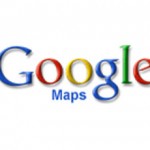 San Francisco — After going through some difficult times for a few months the software maker Microsoft introduced Bing, and according to Reston-based metrics firm comScore in its latest report indicated that while still lagging far behind Google, Bing showed signs of greater growth than its main search rival in June.
San Francisco — After going through some difficult times for a few months the software maker Microsoft introduced Bing, and according to Reston-based metrics firm comScore in its latest report indicated that while still lagging far behind Google, Bing showed signs of greater growth than its main search rival in June.
Bing, which recently had its first anniversary in late May, and while Bing’s rise in the market cannot exactly have been described as meteoric, although comScore says Bing is witnessing its search share in the U.S. market increase from 12.1% in May to 12.7% in June.
Whereas, Google’s share of the search market plunged slightly in June, as Yahoo and Microsoft witnessed modest increases thanks to their reliance on contextual search, according to Tuesday data from comScore.
According to comScore, Americans conducted 16.4 billion searches in June, up 3% from the previous month, and both Bing and Yahoo gained 0.6 percent, to 18.9 percent and 12.7 percent of the U.S. search market between May and June of 2010 respectively, with the bulk of that gain coming at the expense of market leader Google.
comScore discovered that Google still accounted for around 62.6 percent of the U.S. search market in June 2010, but declined about 1.1 percent from 63.7 percent in May. However, Ask.com network captured about 3.6 percent share and AOL lost 0.1 percent to finish up at 2.2 percent. comScore’s search numbers for the U.S. market focus on “core search,” and omit things like searches on mapping services, user-generated video sites, and local directory services.
|
comScore Core Search Report*
June 2010 vs. May 2010 Total U.S. – Home/Work/University Locations Source: comScore qSearch |
|||
| Core Search Entity | Share of Searches (%) | ||
| May-10 | Jun-10 | Point Change Jun-10 vs. May-10 | |
| Total Core Search | 100.0% | 100.0% | N/A |
| Google Sites | 63.7% | 62.6% | -1.1 |
| Yahoo! Sites | 18.3% | 18.9% | 0.6 |
| Microsoft Sites | 12.1% | 12.7% | 0.6 |
| Ask Network | 3.6% | 3.6% | 0.0 |
| AOL LLC Network | 2.3% | 2.2% | -0.1 |
* Based on the five major search engines including partner searches and
cross-channel searches. Searches for mapping, local directory, and
user-generated video sites that are not on the core domain of the five
search engines are not included in the core search numbers.
With regards to expanded search, which includes searches for maps, local directories, and user-generated video sites, Google Sites had 14.6 billion searches overall. Almost 11 billion of those were for Google.com, while about 3.7 billion were for YouTube.
Similarly, Microsoft’s Bing secured about 2.2 billion searches, up 5 percent from last month. Facebook captured 621 million searches, up 2 percent, while MySpace obtained 292 million, down 5 percent.
|
comScore Core Search Report*
June 2010 vs. May 2010 Total U.S. – Home/Work/University Locations Source: comScore qSearch |
|||
| Core Search Entity | Search Queries (MM) | ||
| May-10 | Jun-10 | Point Change Jun-10 vs. May-10 | |
| Total Core Search | 15,935 | 16,439 | 3% |
| Google Sites | 10,158 | 10,292 | 1% |
| Yahoo! Sites | 2,908 | 3,114 | 7% |
| Microsoft Sites | 1,930 | 2,082 | 8% |
| Ask Network | 577 | 584 | 1% |
| AOL LLC Network | 361 | 368 | 2.00% |
* Based on the five major search engines including partner searches and
cross-channel searches. Searches for mapping, local directory, and
user-generated video sites that are not on the core domain of the five
search engines are not included in the core search numbers.
The news could be encouraging for both Yahoo and Bing: Yahoo has been introducing revamped services and pages designed to make the Yahoo collection of services more social and integrated with other popular online offerings; meanwhile, Bing has been touting itself as a “decision engine” that focuses on making use of data people search for, rather than a mere list of search results. Under a long-term partnership, Bing will soon start handling the back end of searches submitted to Yahoo, although Yahoo will continue to develop its own search front-end and services.
Industry analysts have indicated that users are simply acquainted to engaging Google’s highly popular search engine, and that they will need a strong reason to switch.


